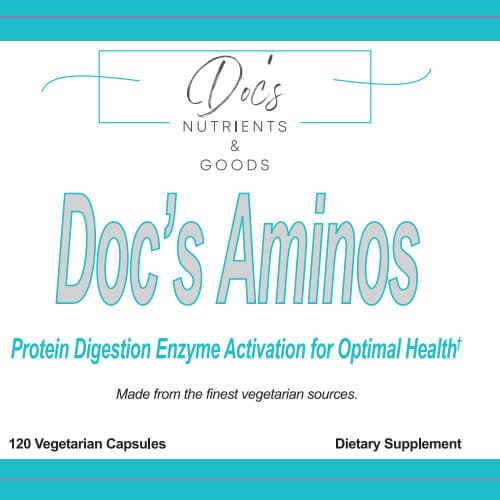No products in the cart.
Amino Acids for Pets
Live Enzymes in Pet Food
In ancient times carnivores such as dogs and cats, used to have live enzymes available in their diet with the ingestion of raw meat. Small rodents such as hamsters ate insects. Modern pets survive on a diet of cooked food. This means that the pancreas is asked to supply 100% of the needed digestive enzymes. This factor combined with a diet high in grain filler (dry pet food, pet biscuits, even canned pet food) leads to an overworked pancreas that cannot produce the enzymes needed to break food down into the amino acids needed to produce the thousands of proteins these animals need to function in a healthy manner.
Protein Deficiency
As your pet’s system begins to malfunction from lack of systemic protein, you may notice that he has a difficult time getting up and down because of sore joints, he may develop a poor appetite, skin conditions, a thinning, dull coat, he may have loose stools, seem irritable, depressed, develop allergies or a host of other symptoms that don’t seem connected to anything. They are all connected to a growing protein deficiency.
Pathogenic changes
As in humans, the resulting shift in pH further effects the efficiency of the enzymes being produced by the animal, reducing their efficiency or rendering them completely ineffective. Pathogenic and semi-pathogenic organisms take over and can damage the intestinal lining to the point that nutrients are only absorbed with great difficulty. This condition worsens with age.
Dilated Cardiomyopathy (DCM)
Dilated cardiomyopathy (DCM) is a disease increasingly found in dogs. This heart condition (an enlargement similar to goiter, which is also an attempt to compensate for a nutritional deficiency) used to be found almost exclusively in cats. Cats cannot create the sulfur-containing amino acid, taurine and so it must be supplied in their diets from fish, eggs, meat and poultry, if not they run a high risk of ending up with DCM. Dogs can synthesize taurine from the sulfur-containing amino acids methionine and cysteine, Complete proteins of high biological value such as beef, poultry, eggs and fish contain these important sulfur-containing amino acids. But if the digestive system is weakened to the point where it cannot break these foods down, then the animals will be unable to have available systemic taurine.
With the resulting sulfur and protein deficiency, the risk for DCM rises. Dogs and cats that are protein deficient also run the risk of other diseases, such as cancer, bursitis, arthritis, diabetes, viral and bacterial infections and degenerative disk disease. Dogs, cats, rodents, and ferrets need adequate systemic protein in order to live happy healthy lives. Another risk of low-quality protein/high grain diets may also be adrenal cancer, which in the USA is a leading cause of hamsters and ferrets dying well before their usual life span. Symptoms of this cancer include, thirst, large appetite, hair loss, dry itching skin, and listlessness.
Human Foods for Pets
Doc’s Nutrients & Goods developed Doc’s Aminos in order to overcome protein deficiency in humans. The company’s owner found that all his patients with degenerating spinal disks were also protein and sulfur deficient, no matter how much protein they ate. After developing and testing PLAA, he found that not only were his patients’ spines healing, but many other disease conditions were also disappearing.
Cancer Prevention
While Doc’s Aminos cannot cure cancer, clinical statistics prove it may well prevent it, especially adrenal cancer. It will help boost a pet’s immune system and make them more comfortable. Doc’s Aminos placed daily in your pet’s food gives their system a very particular blend of essential amino acids. This blend, fortified with extra sulfur, gives their pancreas everything it needs to manufacture adequate amounts of digestive enzymes. Symptoms such as dull coat, itching, allergies and sore joints begin to disappear as systemic protein becomes available to your dog’s system for maintenance, repair, and protection from infection. Small pets such as mice and hamsters need only 1/3 capsule daily. Small and medium dogs, cats and ferrets need only 1 capsule/day. Large dogs need 1- 2 capsules/day and very large dogs may need up to 4/day. Doc’s Aminos will help your younger pet stay healthy & vibrant, and your older pet live out his life in comfort.





